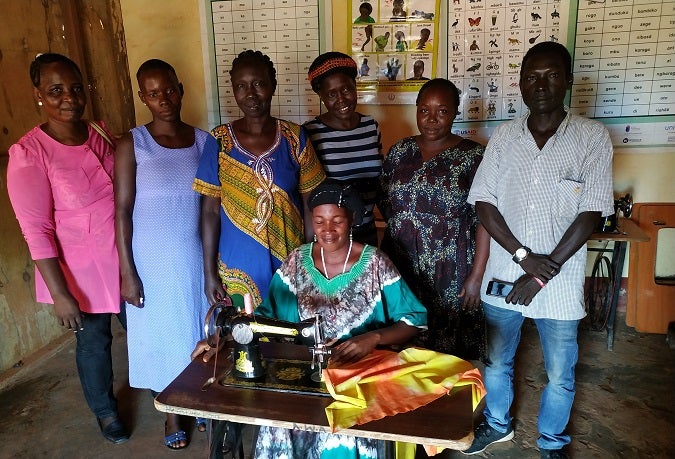UN Women, grounded in the vision of equality enshrined in the Charter of the United Nations, works for the elimination of discrimination against women and girls; the empowerment of women; and the achievement of equality between women and men as partners and beneficiaries of development, human rights, humanitarian action, peace, and security. UN Women supports UN Member States as they set global standards for achieving gender equality and work with governments and civil society to design laws, policies, programs, and services needed to implement these standards.
UN Women is driven by its commitment to eliminate discrimination against women and girls, empower women, and achieve equality between women and men as partners and beneficiaries of development, human rights, humanitarian action, and peace and security. Placing women’s rights at the center of all its efforts, UN Women leads and coordinates United Nations (UN) system efforts to ensure that commitments on gender equality and gender mainstreaming translate into action globally.
The focus of the UN Women South Sudan current Strategic Note 2021-2024 is to support the strengthening of the normative environment and women’s voices and agency, to strengthen women’s economic recovery and resilience through humanitarian action, integrate women’s participation in peace building and support the changing of social norms, to end all violence against women, including sexual violence, and to promote women’s effective participation in Peace and Security.
The Ministry of Gender, Children, and Social Welfare (MGCSW) in South Sudan is mandated to promote gender equality, and social justice, and to safeguard the rights and welfare of women, children, persons with disability, and other vulnerable groups. The scope of the mandate of the Ministry covers gender and women’s empowerment, child, and social welfare functions. Among others, the Ministry is responsible for the formulation and implementation of policies and legislations for the promotion of gender equality, women’s empowerment, child protection and welfare as well as social protection and welfare in South Sudan. The Ministry is composed of five directorates of Gender, and Child Welfare, Social Welfare, Administration, and Research and Planning. The mission of the MGCSW is to “Contribute towards the attainment of a just, peaceful, inclusive and equitable society” and its mission is to, “To provide policy guidance, effective service delivery coordinate, facilitate, monitor and evaluate gender equality, women’s empowerment, the rights of children, persons with disabilities and other vulnerable groups”.
Scope of work
The MGCSW in partnership with UN Women and with financial support from the World Bank is implementing a project aimed at promoting the social and economic empowerment of women and adolescent girls in South Sudan. The project called “South Sudan Women, Social and Economic Empowerment Project (SSWSEEP)”, will be implemented in 10 states and 2 administrative areas in South Sudan focusing on promoting women’s access to economic opportunities, protection, and access to GBV information and services and also strengthening the capacity of the Ministry of Gender, Child and Social Welfare to effectively implement its mandate of promoting Gender Equality and Women’s Empowerment. The project has four (4) components, namely: Component 1: Community Empowerment Support to Women and Girls, Component 2: The Establishment of the Women’s Entrepreneurial Opportunity Facility (WEOF), Component 3: Scaling up services for Survivors of GBV and Component 4: Institutional strengthening focusing on the Ministry of Gender, Child and Social Welfare, Gender, and Youth Cluster, and related national institutions.
One of the key activities under Component 1: Community Empowerment Support to Women and Girls, is to pilot Poultry production in South Sudan, as a strategy for improving the nutrition and economic livelihoods of women and adolescent girls in South Sudan. The pilot phase of the project will promote increased production, promotion, and consumption of poultry, by ensuring that women and adolescent girls have the knowledge, skills, technical support, and market access necessary to make poultry farming a dependable source of revenue and nutrition.
Against this background, UN Women, the Ministry of Gender, Children and Social Welfare, and the PMU request expression of interest from interested International Livestock Research Institutes to pilot poultry production in South Sudan.
